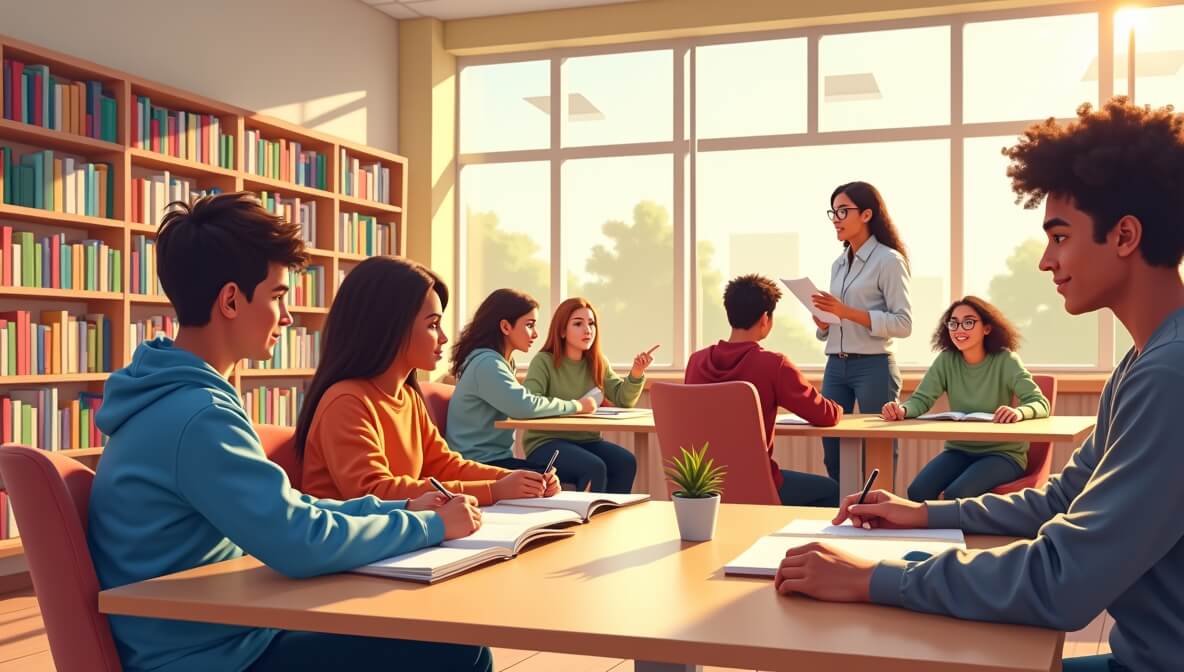The Role of Libraries in Youth Development

Libraries have long been recognized as sanctuaries of knowledge, but in today’s rapidly changing world, their impact goes far beyond books. As vibrant community hubs, libraries are critical in shaping the future of youth by providing access to resources, fostering creativity, and supporting personal and academic growth. They play a pivotal role in youth development, helping to build skills, encourage social responsibility, and provide a safe space for exploration.
Expanding Access to Knowledge
- Libraries democratize access to knowledge. By offering free access to a wide range of books, e-books, research materials, and academic resources, they level the playing field for young people who may not have access to such materials at home. Whether it’s for school assignments, personal exploration, or just fostering a love of reading, libraries ensure that every young person can expand their horizons.
- Programs like summer reading challenges keep students engaged and academically sharp during breaks, preventing the summer slide and ensuring continuous learning. By promoting literacy and a love of reading, libraries also encourage curiosity and lifelong learning.
- To see how libraries complement formal education, check out how targeted interventions address learning gaps.
Digital Literacy and Technology Support
- In the digital age, libraries have evolved into hubs of digital literacy, providing youth access to computers, Wi-Fi, and technology resources they might otherwise lack. Many young people in underserved communities rely on libraries as their primary means of accessing the internet, completing homework, or conducting research.
- Beyond basic internet access, libraries offer coding workshops, media labs, and online research tools, helping to prepare youth for the future job market. These resources empower young people to develop vital 21st-century skills such as problem-solving, creativity, and technological fluency.
- Explore how technology is revolutionizing non-profit work, and see how libraries are embracing these innovations to stay relevant and responsive to community needs.
Safe Spaces for Personal Growth
- Libraries are more than just educational spaces—they are safe havens where youth can explore their interests, collaborate with peers, and grow emotionally and socially. Offering after-school tutoring, study groups, art clubs, and even music and drama workshops, libraries provide opportunities for creative expression and self-discovery.
- These spaces encourage young people to explore their identities, build social skills, and learn from one another in a supportive environment. Whether it’s through storytelling programs, book clubs, or arts initiatives, libraries foster a sense of belonging and empower youth to share their voices and connect with their community.
- Find out how storytelling connects with audiences, and how libraries use this tool to promote creativity, empathy, and communication.
Supporting Career and College Readiness
- Libraries play a vital role in preparing youth for life after high school. Through career fairs, resume workshops, and mentorship programs, they help teens build the skills they need to transition smoothly into adulthood. Many libraries also host college prep workshops, guiding students through the college application process, providing scholarship information, and even offering mock interviews.
- By partnering with local employers and higher education institutions, libraries create a bridge between the classroom and the workforce, equipping young people with the knowledge and confidence they need to pursue their dreams.
Community Connection and Social Responsibility
- Libraries are at the heart of community engagement, bringing together local schools, non-profits, cultural organizations, and residents to foster collaboration. By organizing community service projects, cultural festivals, and volunteer opportunities, libraries promote civic responsibility, empathy, and social awareness.
- Through these programs, youth gain a deeper understanding of the issues facing their communities, and learn the value of giving back. Libraries provide the platform for young people to make a real difference, cultivating the next generation of compassionate, active citizens.
- Learn how non-profits collaborate for greater impact, and see how libraries leverage partnerships to enhance youth development.
Conclusion
- Libraries are far more than repositories of books—they are powerful engines of youth development, providing young people with the tools they need to succeed academically, socially, and personally. By offering access to knowledge, fostering digital literacy, creating safe spaces for exploration, and encouraging community involvement, libraries empower youth to become informed, compassionate, and active citizens.
- Supporting libraries is an investment in the future of our youth and, ultimately, the future of our communities. When we invest in libraries, we invest in the next generation of leaders, thinkers, and changemakers.
